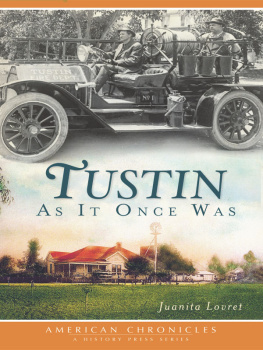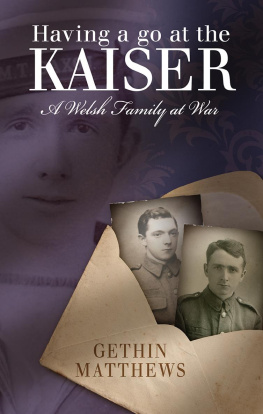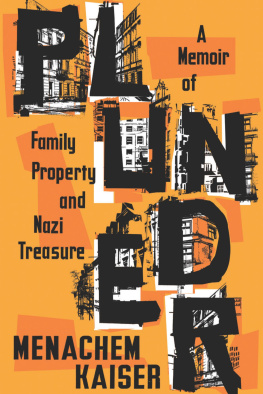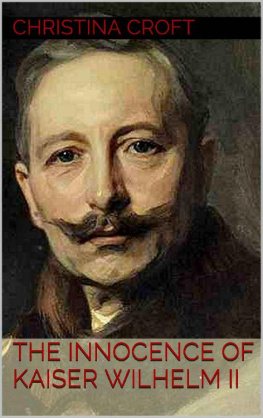First published in Great Britain in 2014 by
PEN & SWORD MILITARY
an imprint of
Pen & Sword Books Ltd
47 Church Street
Barnsley
South Yorkshire
S70 2AS
Copyright Richard Corr, 2014
ISBN: 978-1-47382-194-1
EPUB ISBN: 978-1-47384-528-2
PRC ISBN: 978-1-47384-536-7
The right of H. W. Tustin to be identified as the author of this work has been
asserted by him in accordance with the Copyright, Designs and Patents Act 1988.
A CIP catalogue record for this book is available from the British Library.
All rights reserved. No part of this book may be reproduced or transmitted in
any form or by any means, electronic or mechanical including photocopying,
recording or by any information storage and retrieval system, without
permission from the Publisher in writing.
Typeset by Concept, Huddersfield, West Yorkshire, HD4 5JL.
Printed and bound in England by CPI Group (UK) Ltd, Croydon CR0 4YY.
Pen & Sword Books Ltd incorporates the imprints of Pen & Sword Archaeology,
Atlas, Aviation, Battleground, Discovery, Family History, History, Maritime,
Military, Naval, Politics, Railways, Select, Social History, Transport, True Crime,
and Claymore Press, Frontline Books, Leo Cooper, Praetorian Press,
Remember When, Seaforth Publishing and Wharncliffe.
For a complete list of Pen & Sword titles please contact
PEN & SWORD BOOKS LIMITED
47 Church Street, Barnsley, South Yorkshire, S70 2AS, England
E-mail:
Website: www.pen-and-sword.co.uk
Dedication
Dedicated to my comrade, J. G. BURK,
once of the 90th Winnipeg Rifles,
by H. W. TUSTIN,
once of the 8th Durhams.
Contents
by Margaret Sybil Tustin
List of Plates
List of Illustrations
Foreword
The writing of this book gives me an opportunity long desired of expressing my gratitude to all those who sent parcels of food and clothing to us Gefangeners (prisoners) during the Great War. But for this kindness, the prisoners cemeteries would have been very much larger.
While several books have been written from the point of view of the captured commissioned officer, few, if any, private soldiers have published an account of their experiences in Germany. The reason for this may be that the non-commissioned prisoner was so badly treated that he shrinks from recalling his captivity. The officer was better off. He was spared the agony of working for the enemy and the brutalities by which this slavery was enforced upon his less fortunate subordinates. He usually had better food and more leisure in which to plan and provide for escape. The aim of this book is to give as faithful an impression as possible of life in Lager 2 Mnster i.W. during 1915 and 1916. The incidents recorded happened exactly as stated but, since the writer would dislike seeing his own name in another mans book, British names are for the most part fictitious.
Herbert Tustin
Middleton-in-Teesdale
March, 1931
Acknowledgements
I would like to thank my grandfather for writing this memoir and my grandmother, Uncle Graham and mother for preserving it and passing it down the family line. I am also indebted to my mothers Canadian cousin, Elaine Sinclair, for her important groundwork in tracing Gerrie Burks family members, a task made all the more difficult as it was accomplished pre-internet. Thanks are also due to Richard van Emden, for reading the memoir and recommending Pen and Sword Books, and to Sue Hayter, the archivist at Burks old college, St Andrews (in Ontario, Canada). I would also like to thank Amlie Handke for her copy-editing help, and Julia Annandale (and her husband, Charles) for sending me the audio recording of her grandfather, Private William Stephenson. Finally, I would like to thank the many relatives of Gerrie Burk, who have been most generous in sharing information, memories and family photos.
Richard Corr
(grandson of Herbert Tustin)
London, October 2014
Introduction
This memoir of Herbert Tustin, my grandfather, only recently came into my branch of the family, having languished for several decades in an uncles cupboard following my grandmothers demise. Unfortunately, I never met my grandfather, who died in 1939 when my mother was aged only 10. However, having grown up hearing the story of his exciting wartime adventures, I was delighted to finally get my hands on his manuscript. Reading it was quite a revelation. Not only was it dramatic and well written but also a fascinating historical document, providing a thorough and vivid description of life in a German PoW camp during the Great War. By way of a tribute to my late grandfather, I decided to see if any publishers were interested. Renowned First World War historian Richard van Emden kindly read the memoir and recommended his own publisher, Pen & Sword Books. Thankfully, they liked it, and I am very grateful to them for enabling my grandfather to share his amazing story. My now 85-year-old mother, who clearly adored her father, is delighted to see the publication of his wartime memoir; one of her proudest memories is a chance remark made by an old man during a visit to her northern hometown, Middleton-in-Teesdale, many years after her father had died: Ee bah Gox, thas Tustins lass! Id know thee anywhere. Thas just like thee fadder.
My grandfather and his Canadian fellow escapee, Gerrie Burk, were both captured during the Second Battle of Ypres. This began on 22 April 1915, when the Germans launched a surprise gas attack: these attacks, the first mass use by Germany of poison gas on the Western Front, had a devastating effect, killing 6,000 men in just ten minutes and leaving a four-mile gap in the Allied lines. The reinforcements that were rushed in to plug this gap consisted primarily of Canadian and British troops, which accounted for Burks and, a few days later, my grandfathers presence in the battle. Burk came off rather worse than my grandfather, being, in his own words, in pretty bad shape from the effects of the German gas. Vast numbers of men were killed and captured, but the Allies, though pushed back, held on to the town of Ypres.
Following his capture, my grandfather spent sixteen months at Rennbahn PoW camp, situated about four miles south of Mnster, on what is now Hammer Strasse, between the city and village of Hiltrup. Otherwise known as Mnster II, it was built on a Rennbahn (racecourse), with the grandstand providing space for offices, a chapel and a theatre. Rennbahn, one of nearly 300 German PoW camps, was a Mannschaftslager, a camp for ordinary soldiers as opposed to the Offizierslager, which were the camps designated for commissioned officers. The officer camps were smaller and less crowded than those for the ordinary soldiers, with better living conditions and an exemption from the requirement to do any work. They were usually established in pre-existing buildings, such as country houses, hotels and castles, whereas the ordinary soldiers were housed in huge purpose-built wooden encampments that could hold thousands of men. Rennbahn was a fairly typical Mannschaftslager and at times held up to 10,000 prisoners of many different nationalities.
The experience of being a PoW could be quite contrasting, depending largely on which camp the prisoner was sent to and the nature of the prison work once there. Rennbahn was, fortunately, one of the better camps, which had much to do with the decency of the officer in charge, General von Steinecke, who ruled with a gentler hand than most commandants. The other main variable in deciding a prisoners fate was the type of assigned prison work. My grandfather was one of the luckier ones: after a brief period of being made to work for the enemy, he was offered a job within the camp as British representative on the central committee of the











